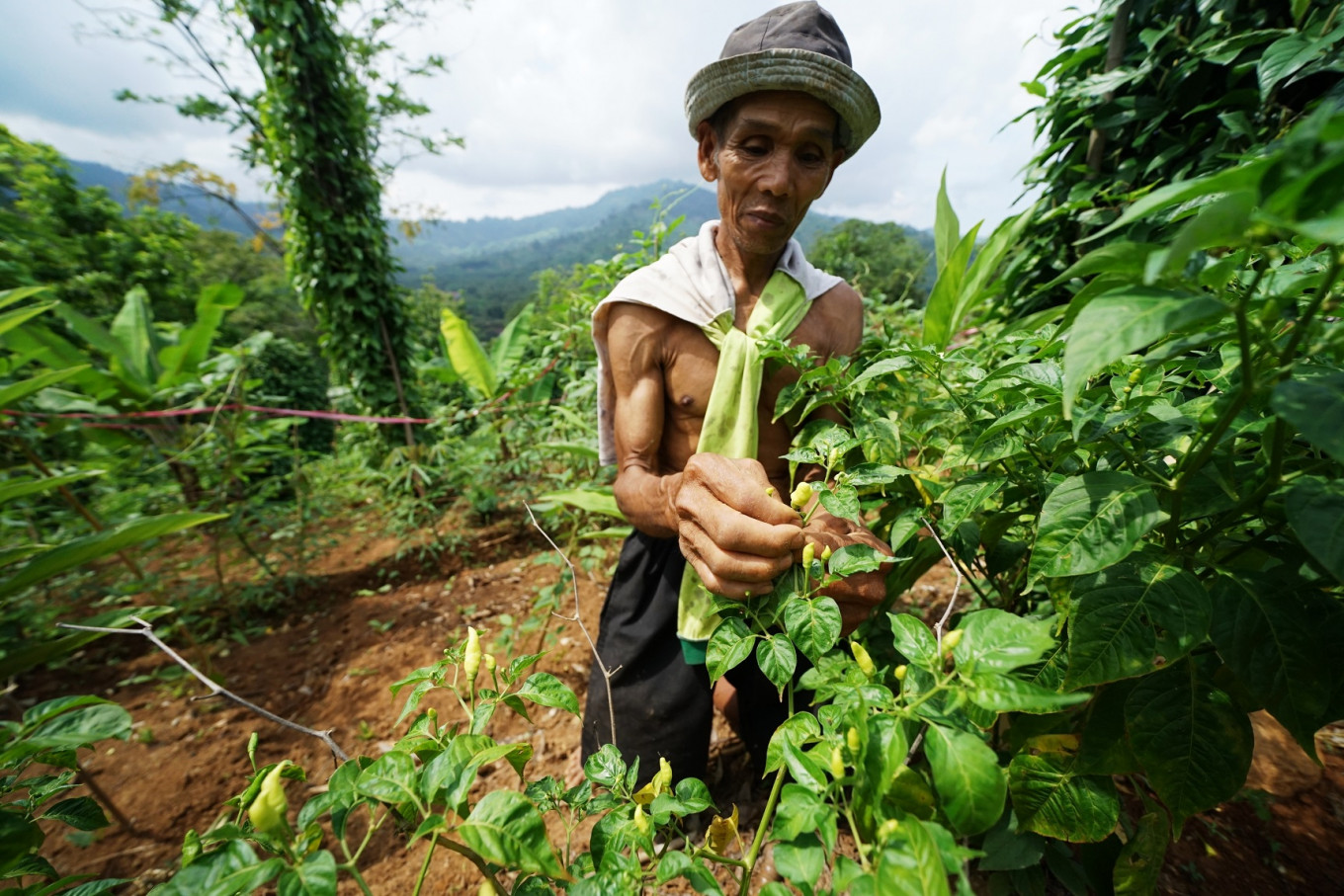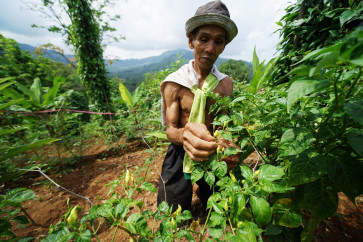Popular Reads
Top Results
Can't find what you're looking for?
View all search resultsPopular Reads
Top Results
Can't find what you're looking for?
View all search resultsThe extended family of Meru Betiri National Park
The partnership was introduced to reduce poverty, unemployment and discrepancy in forest management and utilization by giving local communities access to legal management.
Change text size
Gift Premium Articles
to Anyone
A
conservation partnership with the East Java government is the answer for Meru Betiri National Park (TNMB) farmers who had for years lived in anxiety over their future and the fate of their land.
“Have you ever tried ayam geprek?” asked 74-year old Kliwon, referring to the crispy battered fried chicken that is now popular in many cities.
The dish is made of chicken that is usually mixed with extra hot chili sauce known as cabai setan (satan’s pepper), a variety now being harvested by Kliwon at his plantation.
Kliwon grows cabai setan in his 0.5-hectare plantation as a complement to his main crop, cabai jamu (Javanese long pepper), which is far more profitable. Around 30 plants of this species can be found in his plantation in Curahnongko village, Tampurejo district, Jember, East Java.
“I once harvested 400 kilograms of cabai jamu,” he said.
“The Papuans chew young cabai jamu instead of betel leaves, which they believe can enhance the body’s immune system and heal various illnesses.”
Kliwon also grows common plants like petai (stink beans) and durian. He claimed to have obtained their seedlings from the national park. That afternoon, he picked papaya fruits, after harvesting young jackfruits, bananas, ginger, galingale and other spices to be sold in the Ambulu market, about 10 kilometers from his home.



















